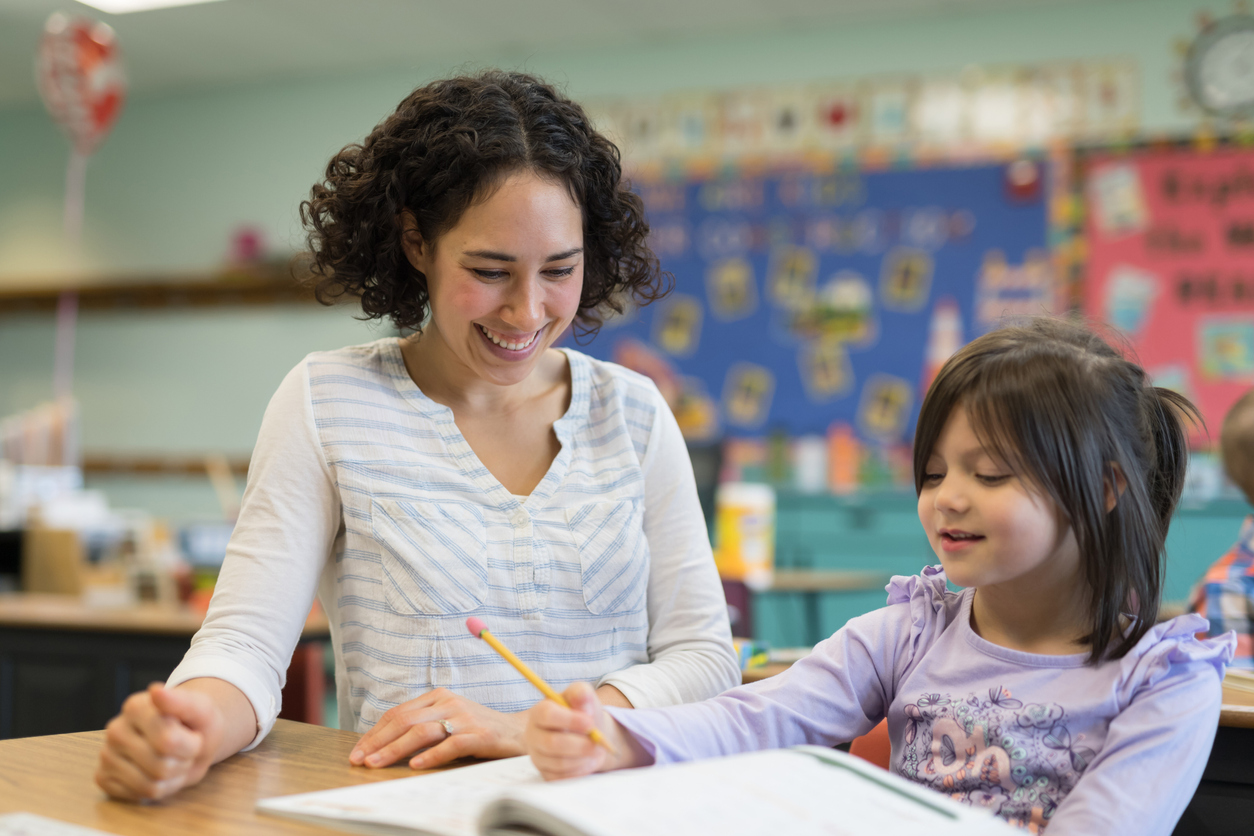At Surpass Behavioral Health, we understand the unique challenges faced by children and adolescents with autism spectrum disorder (ASD) in a school setting. Our school-based ABA therapy is a comprehensive program designed to provide individualized support to students throughout their school day. Our dedicated and compassionate team members are committed to helping students excel academically, socialize with their peers, and thrive within their educational environments.

School-based ABA therapy refers to the application of Applied Behavior Analysis within the classroom. With a focus on maximizing learning opportunities and promoting positive social behaviors, ABA therapy in school settings combines evidence-based strategies and personalized interventions to enhance your child’s educational experiences.
School-based ABA therapy is facilitated by highly trained ABA therapists, such as a Board Certified Behavior Analyst (BCBA) and/or Registered Behavior Technician. These committed professionals work closely with your child, helping them navigate their daily academic routines effectively and support peer interactions.
ABA therapy in the school setting works through collaboration between ABA therapists, parents, teachers, and guidance counselors. Your child’s ABA therapist will work with you to understand the child’s unique needs, goals, and preferences. Using this information, your child’s ABA therapist will implement effective ABA techniques through the use of positive reinforcement during your child’s school day.
Therapists will also partner with teachers and other school staff to ensure a holistic approach to support inside the classroom and other school settings, like recess and lunch. By sharing insight and strategies, ABA therapists foster a cohesive team environment that helps in the generalization of skills throughout your child’s academic career.
During the Surpass school-based ABA therapy program, an RBT or BCBA will work closely with your child throughout the entire school day, acting as individualized support specifically focused on the needs of your child. They help with transitions between classes, provide necessary 1:1 attention, and implement targeted behavioral interventions.
Pairing is an essential aspect of our school-based ABA therapy, as it helps build a positive and trusting relationship between the child and ABA therapist. Through the process of pairing, your child’s therapist strives to establish themselves as a reliable and enjoyable presence at school. This involves engaging in conversation and activities that the child finds reinforcing. Pairing not only enhances your child’s engagement and cooperation, but also lays the foundation for effective teaching and intervention.

Within the school setting, ABA therapists offer targeted support to enhance academic performance, develop social skills, and address problem behaviors. They work closely with your child, tailoring instruction to their unique learning style and abilities, ensuring that academic progress is met.
Additionally, therapists focus on promoting social skills by facilitating interactions with peers, teaching appropriate social cues and norms, and fostering friendships. Lastly, ABA therapists address problem behaviors, like tantrums, by utilizing evidence-based strategies to identify the underlying causes and implement effective coping skills.
ABA therapists utilize a range of ABA strategies in the classroom to support skill acquisition within the school setting. These techniques may include Discrete Trial Training (DTT), which breaks down skills into smaller, manageable steps and uses repetition and reinforcement to promote learning.
Therapists also use naturalistic teaching strategies, such as pivotal response teaching (PRT), which focuses on overall development of communication, social skills, and independence over individual behaviors. Finally, ABA therapists may utilize positive reinforcement strategies, like token economy, to increase motivation for positive behaviors like cleaning up and working quietly.
Your child will follow a designated treatment plan based on the natural school environment, encompassing skills like asking appropriate questions and sitting at a table or desk. Your child’s ABA therapist will adapt their strategies and techniques based on the specific challenges and goals of the child they are supporting. This flexibility allows therapists to address immediate concerns, reinforce positive behaviors, and promote skill acquisition in real-time.

School-based ABA therapy provides structured support within the familiar school environment, enhancing academic, social, and behavioral skills. This integration fosters skill generalization, allowing children to apply learned skills in real-life situations, including the classroom. School-based ABA therapy offers a comprehensive approach to supporting children with autism or behavioral challenges in an educational setting.
School-based ABA therapy uses a diverse set of teaching strategies that encompass Discrete Trial Training (DTT) for skill mastery, Natural Environment Teaching (NET) to promote real-world application, visual supports to enhance communication, positive reinforcement to motivate learning, prompting to guide behavior, and social skills training to foster successful interactions. These approaches are thoughtfully selected to maximize skill development.
School-based ABA Therapy is usually available for children aged 2 and older. However, specific age requirements and eligibility criteria can vary depending on the school or educational institution, that’s why it is essential to discuss each kid’s needs with the school team to determine the most appropriate age for starting therapy.
To determine if your child’s school offers ABA Therapy, start by reaching out to the school directly or reviewing your child’s Individualized Education Plan (IEP), where recommended services, including ABA Therapy, should be outlined. Additionally, consulting with the school’s educational team can provide valuable insights into available services and your child’s eligibility. If you require assistance, you can contact us and we will help you dive into the very first steps of your child’s therapy at school.
It’s essential to contact your insurance company directly to understand the extent of coverage and any potential out-of-pocket expenses associated with school-based ABA therapy for your child, since it can vary depending on the provider and policy. Surpass currently accepts all major insurance providers and state Medicaid programs, with private pay options available as well. For more information on the Intake process, please visit our Insurance Page.
Surpass Behavioral Health’s school-based ABA therapy offers children and adolescents with autism the opportunity to achieve their academic goals. With our experienced therapists providing high-quality and personalized support throughout the school day, your child will see enhanced academic performance, improved peer relationships, and increased coping skills. We are committed to partnering with schools and families to create inclusive and supportive educational experiences for all students. Contact us to learn more about our school-based ABA therapy services, or get started today.